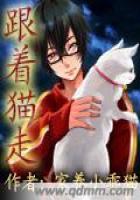The summer evening together that had left its mark on the memory of both the young man and woman had, when looked at quite sensibly, been rather stupidly spent. They had walked out of town along a country road. Then they had stopped by a fence near a field of young corn and George had taken off his coat and let it hang on his arm. "Well, I've stayed here in Winesburg--yes--I've not yet gone away but I'm growing up," he had said. "I've been reading books and I've been thinking. I'm going to try to amount to something in life.
"Well," he explained, "that isn't the point. Per- haps I'd better quit talking."The confused boy put his hand on the girl's arm. His voice trembled. The two started to walk back along the road toward town. In hisdesperation George boasted, "I'm going to be a big man, the biggest that ever lived here in Winesburg," he de- clared. "I want you to do something, I don't know what. Perhaps it is none of my business. I want you to try to be different from other women. You see the point. It's none of my business I tell you. I want you to be a beautiful woman. You see what I want."The boy's voice failed and in silence the two came back into town and went along the street to Helen White's house. At the gate he tried to say something impressive. Speeches he had thought out came into his head, but they seemed utterly pointless. "I thought--I used to think--I had it in my mind you would marry Seth Richmond. Now I know you won't," was all he could find to say as she went through the gate and toward the door of her house.
On the warm fall evening as he stood in the stair- way and looked at the crowd drifting through Main Street, George thought of the talk beside the field of young corn and was ashamed of the figure he had made of himself. In the street the people surged up and down like cattle confined in a pen. Buggies and wagons almost filled the narrow thoroughfare. A band played and small boys raced along the side- walk, diving between the legs of men. Young men with shining red faces walked awkwardly about with girls on their arms. In a room above one of the stores, where a dance was to be held, the fiddlers tuned their instruments. The broken sounds floated down through an open window and out across the murmur of voices and the loud blare of the horns of the band. The medley of sounds got on young Willard's nerves. Everywhere, on all sides, the sense of crowding, moving life closed in about him. He wanted to run away by himself and think. "If she wants to stay with that fellow she may. Why should I care? What difference does it make to me?" he growled and went along Main Street and through Hern's Grocery into a side street.
George felt so utterly lonely and dejected that he wanted to weep but pride made him walk rapidly along, swinging his arms. He came to Wesley Moy- er's livery barn and stopped in the shadows to listen to a group of men who talked of a race Wesley's stallion, Tony Tip, had won at the Fair during the afternoon. A crowd had gathered in front of the barn and before the crowd walked Wesley, prancing up and down boasting. Heheld a whip in his hand and kept tapping the ground. Little puffs of dust arose in the lamplight. "Hell, quit your talking," Wesley exclaimed. "I wasn't afraid, I knew I had 'em beat all the time. I wasn't afraid."Ordinarily George Willard would have been in- tensely interested in the boasting of Moyer, the horseman. Now it made him angry. He turned and hurried away along the street. "Old windbag," he sputtered. "Why does he want to be bragging? Why don't he shut up?"George went into a vacant lot and, as he hurried along, fell over a pile of rubbish. A nail protruding from an empty barrel tore his trousers. He sat down on the ground and swore. With a pin he mended the torn place and then arose and went on. "I'll go to Helen White's house, that's what I'll do. I'll walk right in. I'll say that I want to see her. I'll walk right in and sit down, that's what I'll do," he declared, climbing over a fence and beginning to run.
On the veranda of Banker White's house Helen was restless and distraught. The instructor sat be- tween the mother and daughter. His talk wearied the girl. Although he had also been raised in an Ohio town, the instructor began to put on the airs of the city. He wanted to appear cosmopolitan. "I like the chance you have given me to study the back- ground out of which most of our girls come," he declared. "It was good of you, Mrs. White, to have me down for the day." He turned to Helen and laughed. "Your life is still bound up with the life of this town?" he asked. "There are people here in whom you are interested?" To the girl his voice sounded pompous and heavy.
Helen arose and went into the house. At the door leading to a garden at the back she stopped and stood listening. Her mother began to talk. "There is no one here fit to associate with a girl of Helen's breeding," she said.
Helen ran down a flight of stairs at the back of the house and into the garden. In the darkness she stopped and stood trembling. It seemed to her that the world was full of meaningless people saying words. Afire with eagerness she ran through a gar- den gate and, turning a corner by the banker's barn, went into a little side street. "George! Where are you, George?" she cried, filled with nervous excite- ment. She stopped running, and leaned against a tree to laugh hysterically. Along the dark little streetcame George Willard, still saying words. "I'm going to walk right into her house. I'll go right in and sit down, " he declared as he came up to her. He stopped and stared stupidly. "Come on," he said and took hold of her hand. With hanging heads they walked away along the street under the trees. Dry leaves rustled under foot. Now that he had found her George wondered what he had better do and say.















